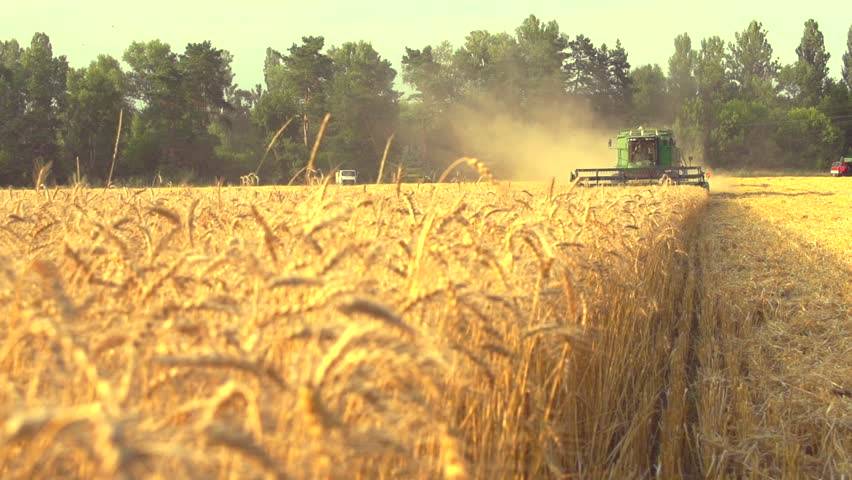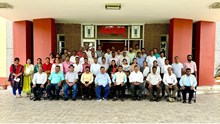
Delhi: The ongoing lockdown has added new dimensions to the problems faced by the rural sector, particularly, the all-important farm division. At the same time, it has thrown several opportunities to carry out the long-pending reforms the agriculture field has been waiting for. It means impetus should be given on up-gradation of farm infrastructure and the farming style through digitization and mechanisation as the manual labour market is disrupted.
As many labourers, who had migrated to cities, are struggling to return to their villages when they are most needed during the harvesting of Rabi crops as well as later for the farm activities during Kharif season. As a part of Covid-19 relief package, the Modi government has announced Rs 1.5 trillion package for the farm sector to strengthen infrastructure and logistics to help value addition. However, in short-term, the non-availability of labourers would have a profound impact on the agricultural activities, so subsequently on the crop yield and thus jeopardizing food security.
Dr. Shivendra Bajaj, Executive Director, Federation of Seed Industry of India, said, “the national shutdown has created an unprecedented situation. Majority of labourers that also include landless farmers are stuck in cities though the government has been trying its best to transport them back to their upcountry homes. The sudden shortfall in manual labour-force -- when the monsoon is just one or two weeks from its scheduled arrival -- can disrupt the pre-sowing as well as sowing activities during crucial Kharif season. In such a scenario, farmers can rely on farm machinery and equipment to offset the need for labourers. Also, the use of information technology, good quality of seeds and other inputs along with government assistance can provide farmers with adequate support to deal with the negative effects arising out of the coronavirus pandemic.”

According to 2011 census, majority of migrant labourers (over 450 million, which have definitely increased over the years) hail from northern and eastern parts of the country, who migrated to western and southern state for manual work. Now, the loss of jobs, stuck wages of these migrant workers have beseeched the reverse migration to Uttar Pradesh and Bihar, which are the biggest sources of migrant workers, followed by Madhya Pradesh, Chhattisgarh, Jharkhand, West Bengal among others. Yet, millions of labourers have stranded in different states.
Moreover, significant rural population migrate to other states and union territories such as Punjab, Haryana, Ladakh to work as labourers in the farm-fields. In areas where commercial crops are cultivated, the daily wages are reported to have gone up substantially as the labourers required for harvesting have left for their native places amid coronavirus crisis. And looking at the mental and physical stress the migrant labourers must be facing in getting transported to their villages, they would not be ready to migrate back easily in near future. So, the labourers that are required to carry out farm works such as tilling, ploughing land and later for intensive sowing part seem to be distributed disproportionately. In such difficult times, the responsibility to tackle the farm-related challenges lies with farmers, governments, agri- product companies alike.
To begin with, farm mechanisation can supplement lack of labour. Farmers must be urged to adopt digital and mechanised ways to grow crops. Different government schemes such as the Sub-Mission on Agricultural Mechanisation (SMAM) Rashtriya Krish Vikas Yojana (RKVY), Mission for Integrated Development of Horticulture (MIDH), National Mission on Oilseeds and Oil Palm (NMOOP) can be used to get financial assistance and guidance to buy or rent farm machinery and equipment. For effective implementation of social distancing, the Union Agriculture Ministry has already issued guidelines for smooth supply of such machinery to farmers. In addition, it has given exemptions till end of this year on different tests that are required to procure of tractors, power tillers, combine harvesters and other self-propelled agricultural machinery.
The impact of Covid-19 on the economy is set to be devastating and no sector is going to be spared. However, the impact on the agriculture sector would be complex and varied. Besides farm mechanisation, farmers can opt for good quality seeds, optimum use of crop inputs such as fertilisers and pesticides to protect their crops from other unforeseen threats that may arise during the coronavirus crisis. All this would also contribute to the efforts of the government to double farmer’s income by 2022. The ongoing health emergency offers farmers an opportunity to adopt state-of-the-art farm management practices, which are laced with an assortment of technology including hybrid seeds, big data analytics, artificial intelligence, geo-tagging & satellite monitoring. The time is ideal for farmers to jump the bandwagon to become competitive internationally.















